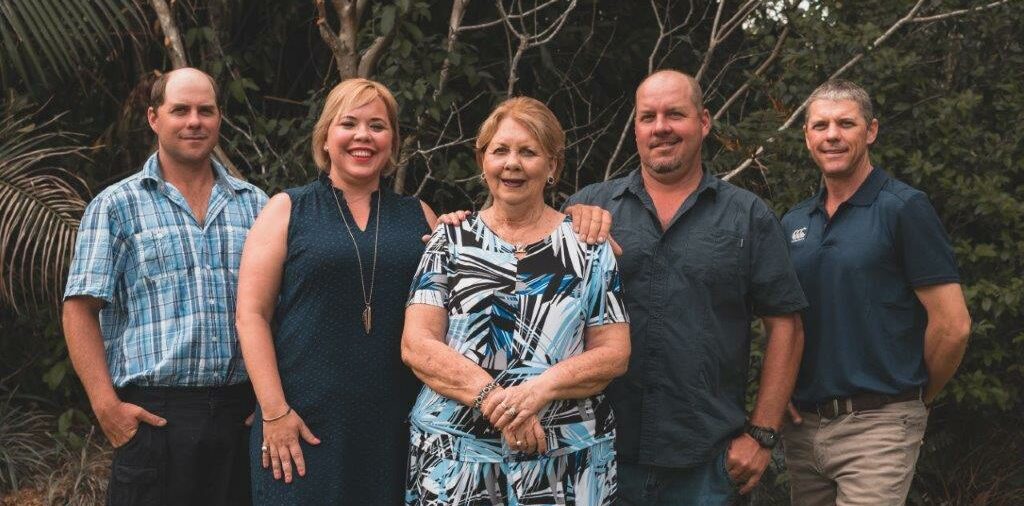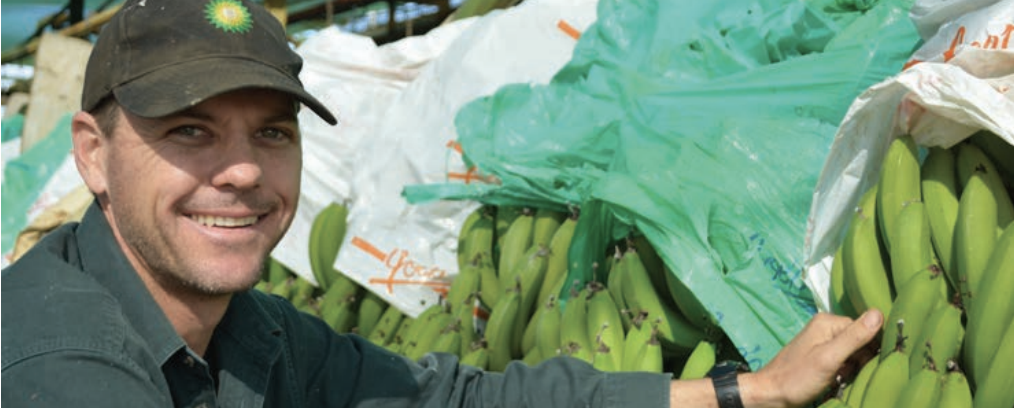
For more than 40 years, the Johnston family has been part of the fabric of the North Queensland banana industry.
A legacy born from industry pioneer Mort Johnston, his wife Jill, and carried on by his middle son Paul, the family is highly regarded as innovators, authentically industry minded, and with a genuine love of the land and community.
On October 6 of this year, Paul Johnston packed his last cartons of bananas on his Davidson Road property in the Tully Valley, signaling an end of an era, as he and his family farewelled an industry he had worked in since he was 10 years old.
“Leaving the industry was not a decision we made lightly,” Paul explained.
“It not only affects my family, but also our employees’ families as well. And that was the hardest part. It took a long time and many sleepless nights. But I am now comfortable we’ve made the right decision.”
There was a time when Paul could not have imagined a life not farming bananas. But ultimately, the decision to exit the industry came down to viability and other compounding factors.
In February 2020, Paul’s 118ha banana property in the Tully Valley was confirmed with having Panama tropical race 4 (TR4), the fourth farm to be detected with the devastating disease since it was first discovered in the region in 2015.
Paul continued to work the farm, however – in his words – it was a “game changer” and prompted his decision to gradually take out bananas on a number of ‘clean’ satellite blocks, to mitigate the risk of disease spread.
But it wasn’t just TR4 which ultimately led to his decision to leave the banana industry. Cost of production pressures that have affected industry at large, particularly in the past two years, took their toll on Paul’s operations as well.
“The cost of production was higher than ever. And, growing with TR4 adds to that. But it’s a combination of factors,” he said.
“My farming area was slowly reducing due to having TR4 and eventually I felt the farm would have become unviable, so as a business decision it made sense.
“While it’s a huge change to my life, I am looking forward to the future growing cane and cattle. I will definitely miss being involved in the banana industry, as I have been part of it most of my life. I have made many lifelong friends and relationships which I hope to keep in contact with.”
“When you stop going about your business, you realise how much you miss that contact, that day- to-day interaction with agents, wholesalers, other growers and so on. It’s the people I will miss for sure.”
Where it all began
Mort Johnston – a well-known and respected banana industry pioneer – was born in Tully in 1938 and started the family’s farming dynasty in the early 1950s, working farms locally and travelling to Shepparton, Victoria, cutting cane and picking fruit in the off-season. He worked on his first banana farm in Tully in the early 60s, before purchasing a sugar cane farm in the area in 1964. Over the years, Mort farmed cane, cattle, watermelons and pumpkins.
In 1981, he turned his focus to farming his own bananas, purchasing the first of three partnership farms in the Tully Valley. Paul and his brothers Stephen and Anthony worked on the farms from a young age, mainly on weekends and school holidays. Their mother Jill also worked in the family business. Their sister Melanie currently lives and works in Sydney.
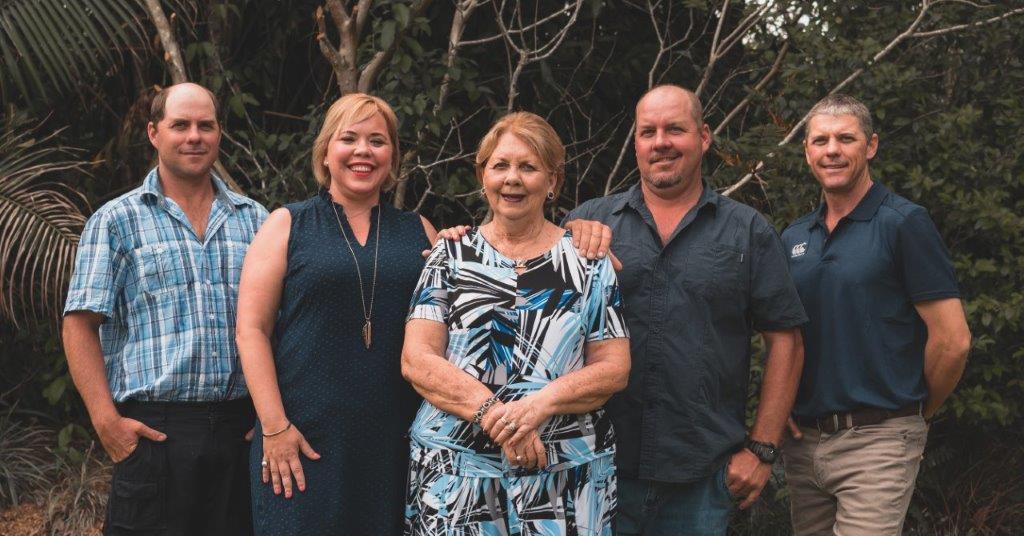
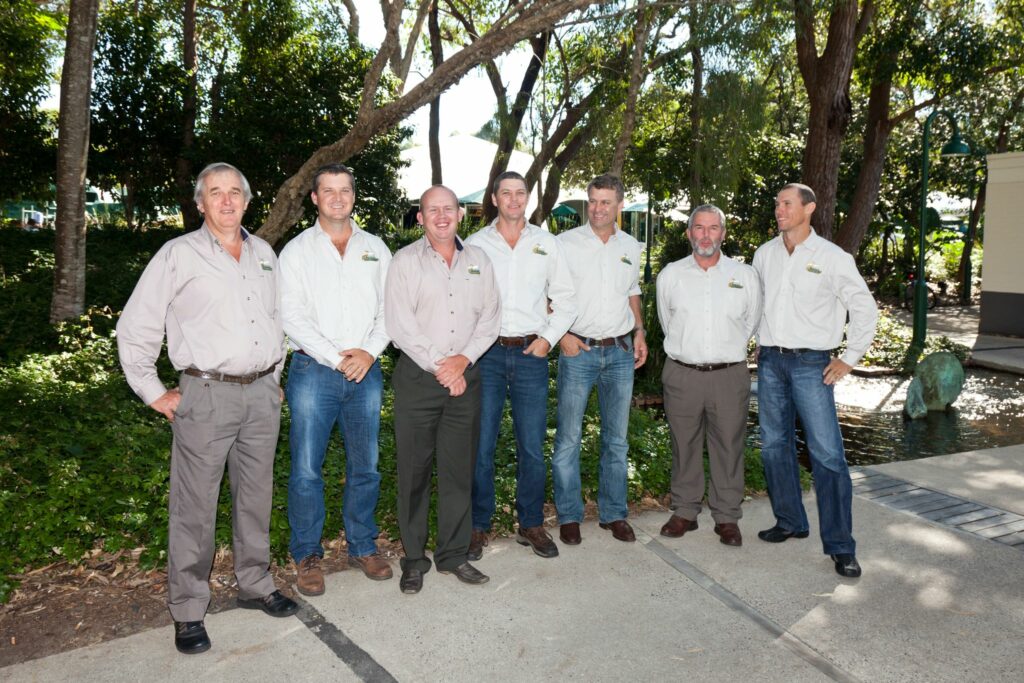
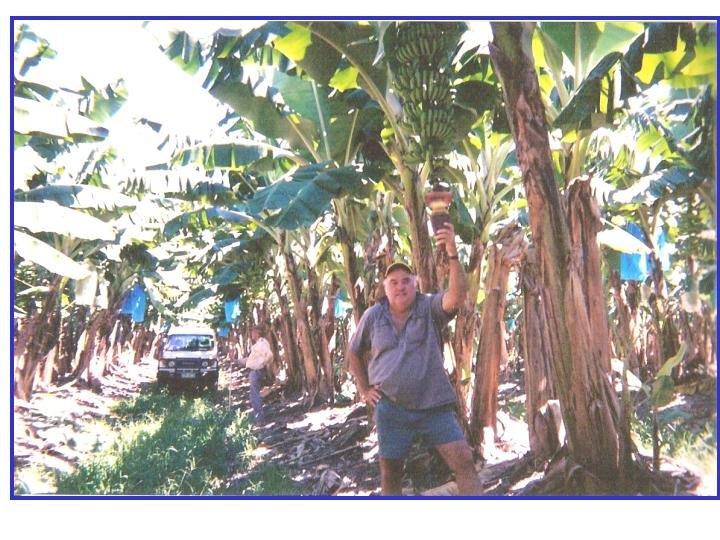
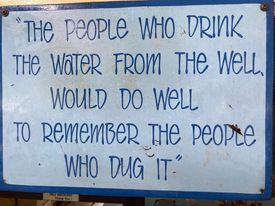
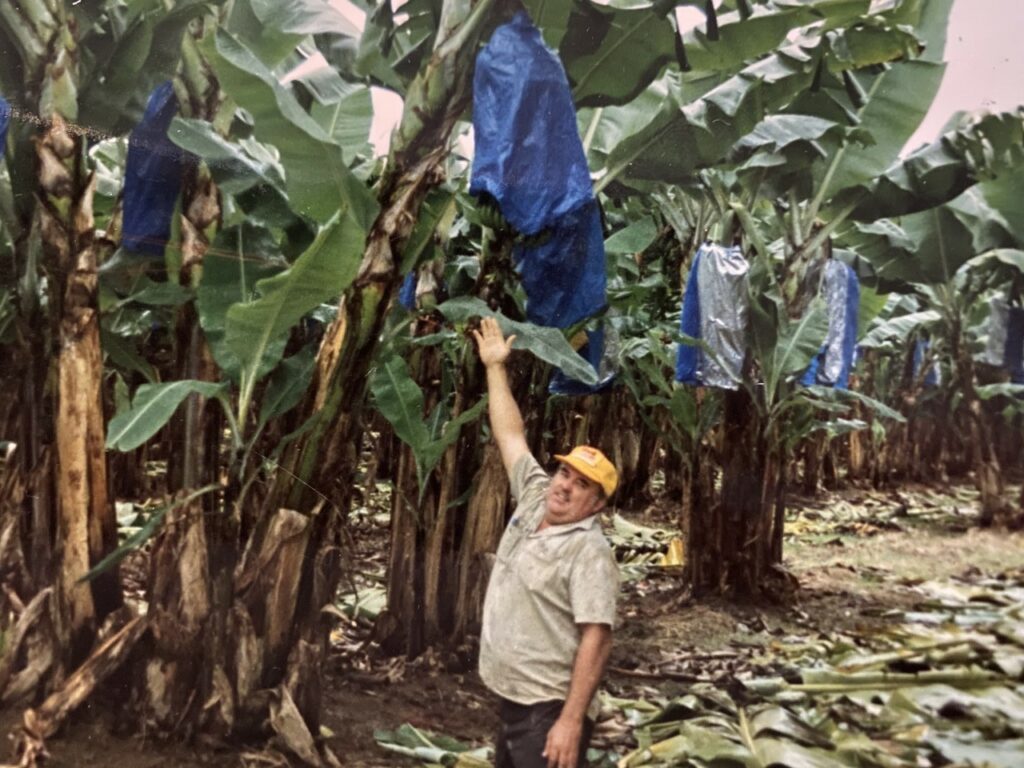
“Banana farming has been a major part of my life since I was 10 years old. After attending boarding school, my two brothers and myself all returned to work on the farm and after working on all areas of the farm, Mort gave us specific areas to concentrate on. My elder brother Anthony was given cane, younger brother Stephen, cattle, and myself, bananas. I have been on the farm since 1992.”
REBUILDING
While the family has always farmed more cane than bananas, Paul said bananas were always “where the action was”. The work was harder, but he loved the industry.
While Paul and his brothers managed their own farms individually over the years, he said his father “shouldered all the responsibility and called the shots”.
Tragically, their worlds would be turned upside down when Mort passed away in March 2006, four days after Cyclone Larry had struck the region, decimating more than 90 per cent of the region’s banana crop.
“Cyclone Larry was a very difficult time. At the time we had 200 hectares of bananas that I worked, and a 200ha partnership farm, which were all flattened by Larry,” he recalled.
“Then Mort passed away and it was a pretty difficult time. All the workers were looking for directions, wanting to know what we were going to do, particularly after the cyclone. There was support from other growers (after Mort passed), heaps of support from industry and from neighbours, but you’ve still got to do things on your own. No one can fix it for you.”
“Over the years, we’ve also been lucky to have dedicated staff, which have been invaluable to our businesses, through many difficult times along the way.”
CARVING HIS OWN LEGACY
After Cyclone Larry and the loss of Mort, the Johnston brothers rallied and rebuilt.
In 2008, Paul was asked to join the Board of the Australian Banana Growers’ Council (ABGC), an offer he accepted.
Over the next eight years, he served as a Director, Treasurer and Vice-president, before stepping down from the Board in 2016.
“Although sometimes it was difficult, particularly through Cyclone Yasi (2011) and the first detection of TR4 (2015), I enjoyed my time on the Board. I learnt a lot and worked with some great people both on the Board and ABGC staff.”
“When I started (on the Board) the (compulsory) levy was just coming in, and the ABGC went from being a pretty small operation – comprising just a CEO and another staff member at the time – to a lot more work, with a lot more organised projects, in a short amount of time.”
“It was a bit of a whirlwind to start off with, for me anyway at the time.”
For much of Paul’s tenure on the Board, Doug Phillips served as ABGC Chair (2011-2016).
He paid tribute to Paul’s generous contributions to industry over the years, particularly during his time with the ABGC.
“The Johnston family have a huge reputation in the industry. I cannot speak highly enough of Paul, and I wish him all the best,” Doug said. “He’ll certainly be missed by industry. His contributions over the years were excellent and he was always there when needed.”
“The family were always industry minded. It wasn’t all about them. They always contributed back, and never put themselves ahead of the industry.”
FUTURE OF THE INDUSTRY
Paul said he’d witnessed a lot of change in the industry over the past 30 odd years and was certain the future would bring more.
“The industry has changed greatly over the decades, some for better, some for worse.
“Packaging and cartons are forever changing, with the aim of transporting fruit better. But I think the 15kg carton has brought little benefit to the grower as price is not reflective and growers are paid for 132 cartons less on a full load compared to a 13kg carton.
“Looking forward, I think somehow growers have got to get more of a return for their product, just to cover the costs these days of production. It’s just not sustainable.”
For now, Paul is happy to watch the industry from the sidelines, pondering what Mort would have thought about the decision to close the curtain on 40 years of banana growing in the north.
“I don’t know if he would have ever done it. We probably would have had twice the bananas in the ground if he was still here,” he says in jest with laughter and a smile.

MOLDING THE PIONEER
Mort Johnston was regarded by his peers as a visionary and a strong advocate for growers working together to better the banana industry.
He gave up his time to serve on a number of committees, including the North Queensland Banana Co-op.
Paul said his father had great foresight and was always looking at the “big picture”.
“He was a very industry minded person, no matter what the industry. He was always trying to get growers to unite and pull in the same direction.
“He was instrumental in helping set up the North QLD Banana Co-Op and was the Chairman for the first 4 years. He served on the board of the Tully Sugar Mill for 10 years and was a driving force in rail line extensions over to Murray Upper and upper Tully Valley, giving the mill access to land and resources to get the job done.”
Mort was awarded the Paul Harris Fellow Award from the Tully Rotary Club for his contribution to the community. And in 2003, received an Award of Honour from the ABGC for his contribution to the banana industry.
“He loved farming. He was a great boss, always giving employees time and help when needed,” Paul said.
“He was one of the first to introduce agronomy onto his farm. And he was generous with sharing his knowledge. He didn’t keep any secrets.”

